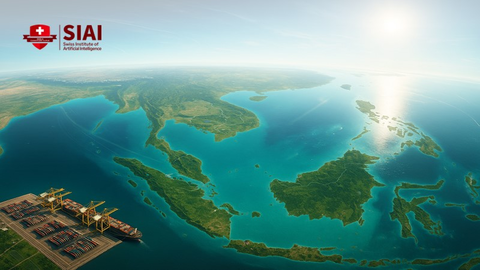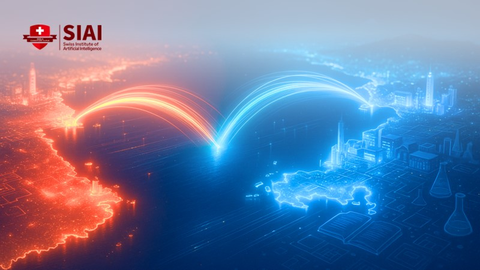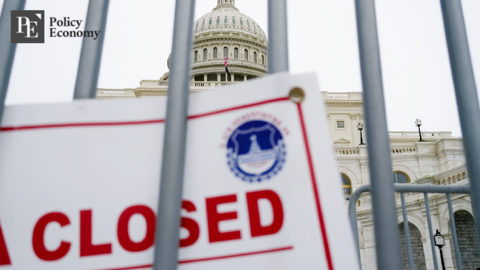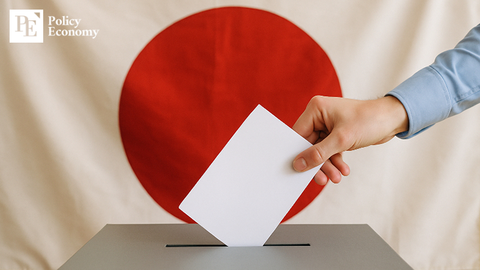[동아시아포럼] ASEAN, 전기차 이니티셔티브를 위한 야심찬 선언
입력
수정
[동아시아포럼]은 EAST ASIA FORUM에서 전하는 동아시아 정책 동향을 담았습니다. EAST ASIA FORUM은 오스트레일리아 국립대학교(Australia National University) 크로퍼드 공공정책대학(Crawford School of Public Policy) 산하의 공공정책과 관련된 정치, 경제, 비즈니스, 법률, 안보, 국제관계에 대한 연구·분석 플랫폼입니다.
주요국들이 탄소 배출을 줄이기 위해 전기차로의 전환을 촉진하는 등 다양한 정책을 추진하면서 전기차의 인기가 날로 높아지고 있다. 특히 아시아 국가들 중 중국은 글로벌 전기차 시장에서 막강한 영향력을 발휘하고 있다. 중국은 2010년부터 10년간 전 세계 전기차의 44%를 제조했으며, 2022년 기준 리튬이온 배터리 생산의 77%가 중국에서 이뤄졌다. 하지만 최근 전기차 시장의 글로벌 공급망이 다각화될 조짐을 보이면서 아세안(ASEAN·동남아시아국가연합) 국가들에게도 새로운 기회가 열렸다.
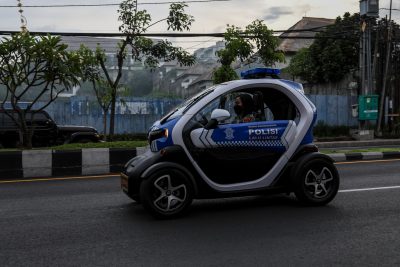
풍부한 천연자원, 전기차 생산기지의 잠재력 갖춰
아세안은 전기차 생산거점으로 성장하기 위한 필수 요소들을 갖추고 있다. 아세안 회원국 중 가장 큰 국토를 가진 인도네시아는 세계에서 가장 큰 니켈 광산 보유하고 있다. 이곳에서는 전기차 배터리의 주요 소재인 주석과 구리가 대량 생산된다. 풍부한 니켈을 보유한 베트남도 배터리 생산지로서 이상적인 조건을 갖추고 있다. 베트남 자동차 제조기업 빈패스트(VinFast)가 건설하고 있는 14ha(헥타르·약 4만2,000평) 규모 배터리 공장의 연간 생산능력은 5GWh(기가와트시)로, 약 300만 개의 배터리 셀을 생산할 수 있다. 아울러 아세안 회원국 중 가장 큰 전기차 시장을 가진 태국도 향후 전기차 생산거점으로 자리매김하기 위해 자국 기업들에 다양한 인센티브를 지원하고 있다. 특히 원자재 등에 대한 수입 관세 면제 혜택은 태국에서 생산하는 전기차 가격을 낮추는 효과를 가져왔다.
이러한 흐름 속에서 올해 아세안 지도자들은 지역 내 전기차 시장의 성장과 아세안경제공동체(AEC)의 도약을 위해 전기차 생태계 육성을 위한 선언을 발표했다. 선언에는 지역 내 전기차 공급망을 조성하기 위한 회원국들의 정치적 관심과 지원을 공고히 하고, 나아가 아세안을 전 세계의 전기차 생산기지로 육성하기 위한 야심 찬 목표가 담겼다. 이들은 이번 전기차 생태계 육성 선언이 글로벌 시장에서 아세안의 이니셔티브를 강화하는 동시에 글로벌 경쟁력을 제고하는 데 기여할 것으로 기대하고 있다.
전기차 표준 개발, 기술교육 프로그램 인증에 초점
아세안의 이니셔티브는 두 가지 핵심 전략을 강조하고 있다. 첫째, 아세안 국가 간 호환되는 전기차 표준을 개발해 국가 간 무역의 상호운용성을 촉진하는 전략이다. 이는 전기차 표준을 토대로 국가 간 호환성을 확보하고 무역절차를 간소함으로써 국경을 넘어 아세안 지역의 전기차 시장을 통합하는 것을 목표로 한다. 두 번째는 기술·직업훈련(TVET·Technical and Vocational Education and Training) 강화를 통해 혁신을 선도하는 인적자원을 육성하는 전략이다.
이 중 가장 당면해 있는 도전은 전기차의 표준을 수립하는 것이다. 여기에는 국가 간 상호인정협정(MRA·Mutual Recognition Arrangement)을 구축하는 과정도 포함된다. 다만 MRA 구축에 오랜 시간이 소요될 수 있는 만큼, 아세안 지역 내 전기차 생태계를 약화시키는 위협 요인이 될 가능성이 있다. 실제로 아세안에서 생산하는 자동차의 표준 유형을 협상하고 승인하기까지 14년이 걸렸다.
또 다른 전략인 TVET 프로그램의 개발·인증은 아세안직업훈련협의회(ATC·ASEAN TVET Council)가 주도해야 할 것이다. 협의회는 아세안의 직업훈련 프로그램을 설계·관리하는 민간단체로서 전기차 분야의 필수 기술과 직업역량을 갖춘 인적자원의 양성에 기여할 것으로 기대된다.
전기차 인프라는 초기 단계, 국가 간 협력과 공유 중요
아세안이 주창한 전기차 이니셔티브의 핵심은 국가 간 연결성과 공정성이 확보된 네트워크를 통해 지식과 정보를 공유하고 지역 인적자원의 기술 역량을 향상시키는 데 있다. 회원국들은 이를 통해 현재 한국과 중국의 배터리 제조업체 및 자동차 기업이 주도하는 전기차 시장에서 아세만의 독자적인 전기차 생태계를 조성함으로써 경쟁력을 확보할 수 있을 것으로 기대하고 있다.
하지만 이를 실행에 옮기는 과정이 순탄치만은 않을 것으로 보인다. 아세안 회원국들은 주요 광물자원의 보유국으로서 엄청난 잠재력을 가지고 있음에도 불구하고 전기차 공급망은 아직 초기 단계에 머물러 있다. 또한 인구 6억6,400만 명에 이르는 아세안 지역의 중산층이 가파른 성장세를 보이고는 있지만, 그에 비해 전기차 보급률은 현저히 낮은 수준이다.
아세안의 중산층과 저소득층은 기존 내연기관차에 비해 높은 가격의 전기차를 소유하기 어려운 데다 열악한 주행 여건과 인프라 부족도 전기차로의 전환을 더욱 어렵게 만들고 있다. 인도네시아, 말레이시아, 태국, 베트남 등 회원국들이 투자를 촉진하기 위한 인센티브 지원과 함께 충전 시설 등 전기차 인프라 구축을 추진하고 있는 이유다.
민간과의 파트너십 강화에도 적극적이다. 아세안 회원국들은 전기차 이니셔티브를 위해 민간과 아이디어를 공유하는 플랫폼을 구축하고 이를 통해 전기차 생태계 육성 정책의 프레임워크를 논의할 예정이다. 이러한 과정은 회원국 간 가치 있는 지식을 공유하고 신뢰를 구축하는 시작점으로 향후 MRA 개발을 촉진하는 데 긍정적인 영향을 미칠 것으로 전망된다.
아세안은 세계 최고의 전기차 생산기지로 도약하고자 하는 야망은 물론 강력한 잠재력을 갖고 있다. 이들이 글로벌 시장에서 주요 생산거점으로 성장하기 위해서는 이같은 잠재력을 활용한 미래 가능성의 탐색 과정이 무엇보다 중요하다. 이와 더불어 아세안 내 민간과 공공 영역의 협력 플랫폼을 공고히하고, 지속가능한 모빌리티 시스템을 구현하는 노력이 더해진다면 향후 전기차 시장의 리더로 성장할 수 있을 것으로 관측된다.
ASEAN’s EV ecosystem ambitions
Electric vehicle (EV) popularity has been surging as countries increasingly incentivise their citizens to transition to EVs to reduce carbon emissions. China leads the way, manufacturing approximately 44 percent of all EVs between 2010 and 2020 and 77 percent of lithium-ion batteries in 2022. But the ongoing global supply chain diversification will transform this landscape, presenting a remarkable opportunity for ASEAN.

ASEAN possesses the essentials necessary to establish itself as a thriving hub for EV manufacturing. Indonesia — the largest country in the region — boasts the world’s largest nickel deposits. It is also a major producer of tin and copper which are essential for EV batteries.
Vietnam’s abundant nickel reserves make it an ideal destination for battery production. Leading the charge is Vietnam’s prominent private conglomerate VinFast which is constructing a 14 hectare battery factory. Its annual capacity of 5 gigawatt-hours is equivalent to 30 million battery cells.
Thailand — the largest producer and market for EVs in the region — is offering incentives to establish itself as an EV production base. This strategy will result in lower import duties and make locally produced EVs more affordable.
In 2023, ASEAN leaders issued a declaration aimed at cultivating a regional EV ecosystem, showcasing their political commitment to developing the region’s EV supply chain and positioning it as a global EV manufacturing hub. This initiative enhances the implementation of the ASEAN Economic Community, which is the region’s ambitious economic integration initiative.
The declaration highlights two key strategies — the alignment of regional EV standards to facilitate seamless cross-border trade and interoperability and the nurturing of human capital through training and certification programs. By unifying standards and promoting compatibility, ASEAN aims to streamline trade and create a cohesive EV market that transcends national boundaries. By investing in training and certification, the region aims to cultivate a skilled workforce capable of driving the EV revolution.
The objective of these initiatives is to cultivate a well-connected and fair EV ecosystem in a region presently dominated by Chinese and South Korean battery and EV manufacturers. These initiatives also aim to promote knowledge exchange and enhance workforce skills. This will fortify the region’s reputation and competitive advantage in this rapidly growing industry.
Implementing the declaration will undoubtedly be a challenge. First and foremost, despite ASEAN member states’ immense potential as suppliers of critical minerals, their EV supply chains remain at a nascent stage. While the region boasts a substantial market of 664 million people and a burgeoning middle class, its EV adoption rate lags behind. The barrier is the high cost of owning an EV compared to traditional internal combustion engine vehicles. This renders EVs out of reach for middle- and lower-income individuals. Range anxiety and charging infrastructure scarcity further complicate the shift towards EV.
But the most daunting hurdle lies in the establishment of regional standards for EVs, a pivotal strategic measure in the declaration. Establishing these standards likely involves developing an ASEAN-wide mutual recognition arrangement (MRA). The journey ahead is arduous. The ‘ASEAN Way’ of developing a MRA entails lengthy negotiations among ASEAN member states, as demonstrated by the 14-year marathon of the ASEAN Mutual Recognition Arrangement on Type Approval for Automotive Products. Such a protracted process risks undermining the foundation of the EV ecosystem that ASEAN seeks to cultivate.
Every ASEAN member country should prioritise enhancing their national EV ecosystems. This can be accomplished by employing fiscal incentives, issuing favourable investment policies and rapidly establishing well-planned charging infrastructure. These actions will not only bolster production but also spur domestic demand for EVs. Indonesia, Malaysia, Thailand and Vietnam are actively formulating measures to advance these critical objectives.
To kickstart a regional EV initiative, ASEAN governments can begin collaborating with the private sector to create an idea-sharing platform. This platform would facilitate discussions on a suitable policy framework to nurture the EV ecosystem. This step may not be as grand as developing a MRA, but it offers a practical starting point that can generate valuable knowledge and, crucially, build trust among member states. This trust can accelerate future MRA negotiations.
Another recommended initiative is the development of a comprehensive regional program for technical and vocational education and training (TVET) to nurture human capital and keep pace with EV technology advancements. This initiative should be spearheaded by the ASEAN TVET Council, a public–private body entrusted with designing and overseeing regional programs to support TVET progress in the region. A collaborative effort between the public and private sectors is crucial for this initiative, as the private sector’s input is necessary to identify and cultivate the requisite skills and competencies demanded by the EV industry.
ASEAN has the potential and ambition to claim the title of the world’s foremost EV manufacturing hub. Yet to ensure success, the region must concentrate its efforts on seizing opportunities within its reach and avoiding the temptation to exceed its current capacity.
원문의 저자인 수리오 아리얀토 누그로호(Suryo Ariyanto Nugroho)는 아세안 사무국 선임사무원을 역임했으며, 현재는 캐나다아시아태평양재단(APFC·Asia Pacific Foundation of Canada)의 파트너십 프로그램 매니저로 재직 중입니다. 이 글의 내용은 저자 개인의 견해로, APFC의 공식적인 의견이 아닙니다.



